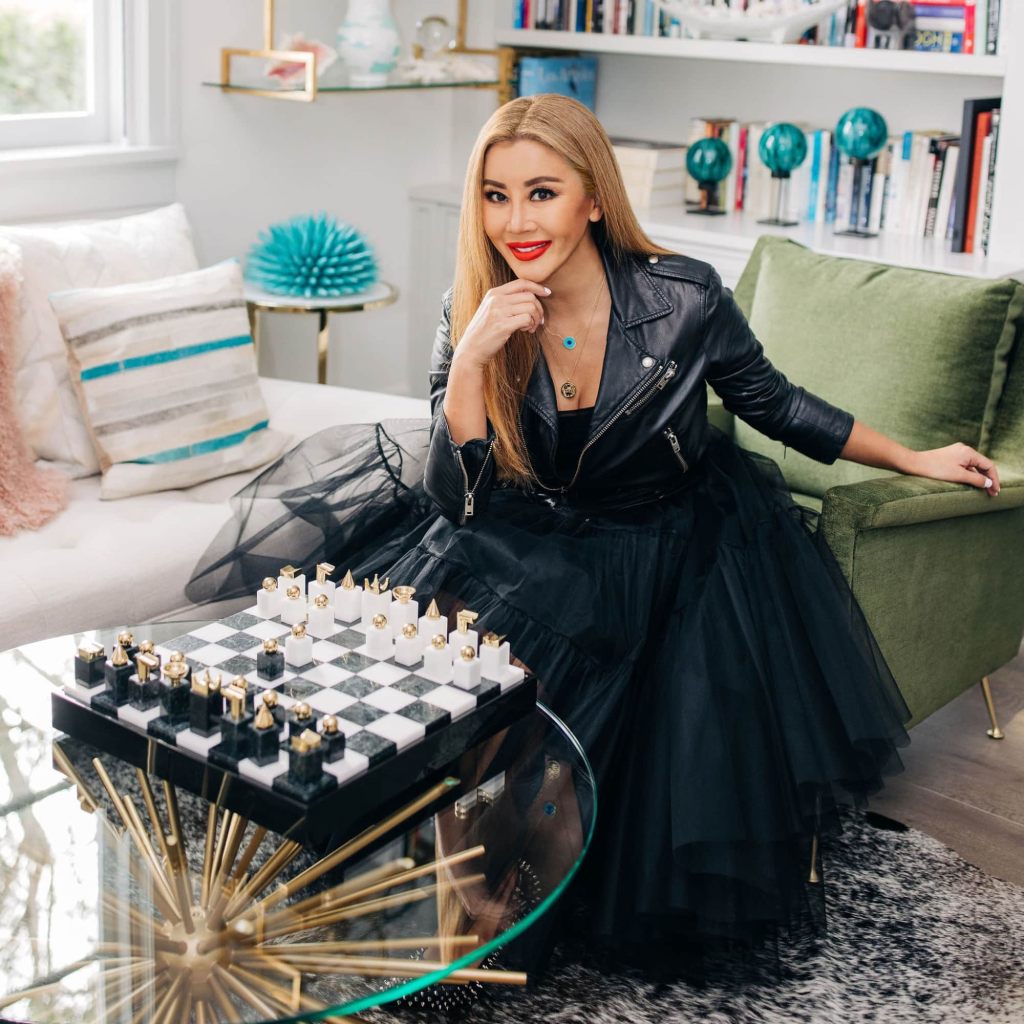Too often, the best beauty stories go Untold, solely based on a person’s skin color, religion, gender expression, disability, or socioeconomic status. Here, we’re passing the mic to some of the most ambitious and talented voices in the industry, so they can share, in their own words, the remarkable story of how they came to be – and how they’re using beauty to change the world for the better. Up next: Toni Ko, the founder and former CEO of NYX Professional Makeup and founder of Bespoke Beauty Brands.
I’m a total makeup girl. Even on a regular day, I’ll have a full face of makeup on. I treat it like a ritual that I do with and for myself. I grew up watching my mom do her makeup and hair every morning. She wouldn’t step out of the house unless she was fully made up, and I was used to that environment, so every morning, that’s what I do. My ritual is to sit in front of my vanity and do my hair and makeup.
I started NYX in 1999. Back then, there were really huge discrepancies between high-end brands and low-end brands. The high-end brands – the ones that you’d find at department stores – were great quality, but they were very expensive. The other stuff was the stuff you’d buy from drugstores, but there was nothing really innovative about the formulas, and even though they were affordable, they weren’t that great. I wanted to marry those two things together: a product being both affordable and innovative, with lots of pigment. And that’s how NYX was born.
I had no experience working for any other company but my family’s, and I’m a first-generation immigrant. My family moved to the US from Korea when I was 13 years old, and they started a company in beauty supply with color cosmetics and fragrances. I went to work at the family business when I was 15. I used to work after school, on the weekends, during vacations – we never took a day off. We worked every day until a huge earthquake in the ’80s caused our roof to cave in. We lost our business overnight. That was the first time we ever went on a family vacation; we were forced to because we no longer had our business.
I learned so much through that experience. My mother is the matriarch of the family, and she taught me how to be a good business owner. I’m all about social capitalism and conscious capitalism. I worked there until I was about 25 years old. That’s when I left and started NYX.
“I had three employees: me, myself, and I.”
The first year, I was a one-woman show. I used to say that I had three employees: me, myself, and I. From being the receptionist to the graphic designer to the accountant to sales, stock, and delivery – I did it all myself. I started out with lip liners and eyeliners. I had six eyeliner colors and 12 lip liners, so 18 products in total. That first year, I did $4 million in retail – I was selling those pencils by the carton! My customers were wholesale customers in downtown, and they were buying in bulk, so that’s how I was able to make that kind of revenue and run the business as one single person. I wasn’t selling single lip liners at a time, I was selling thousands of pieces at once.
The biggest challenge I had, initially, was finding new customers. In order to do that, I had to go to a lot of trade shows. I was constantly on the road, and I was running a really tight ship. I was building booths by myself, so a lot of physical labor went into it, and I did it all wearing high heels.
It’s been seven years since I’ve exited the business and sold the brand to L’Oréal, and it’s really like my first child. When I started NYX, I always knew it was going to be big, but I think I didn’t anticipate it being this big. I always said that I wanted a truly global brand like L’Oréal or Lancôme or Revlon to buy it, and this seems like a life lesson. If you wish for it and you work for it, it can come true. It is a global brand now. I can go anywhere in the world and I’ll see NYX Cosmetics everywhere. Every time I see it at different stores, I still get goosebumps. It’s such an amazing feeling.
I only took a couple of days off after selling to L’Oréal. The first thing I started doing was investing. I started a real estate portfolio company, and I started a small, now-retired fund called Butter Ventures, and my main goal was to invest in woman-founded companies like Rael and Alchemy 43.
Growing up, I couldn’t afford the department-store brands, and that’s why it’s so important that I continued to create products that are both great quality but also affordable for the consumer. I’ve maintained that with my new company, Bespoke Beauty Brands. The cosmetics lines under that company, like KimChi Chic Beauty and Jason Wu Beauty, follow that same accessible model.

